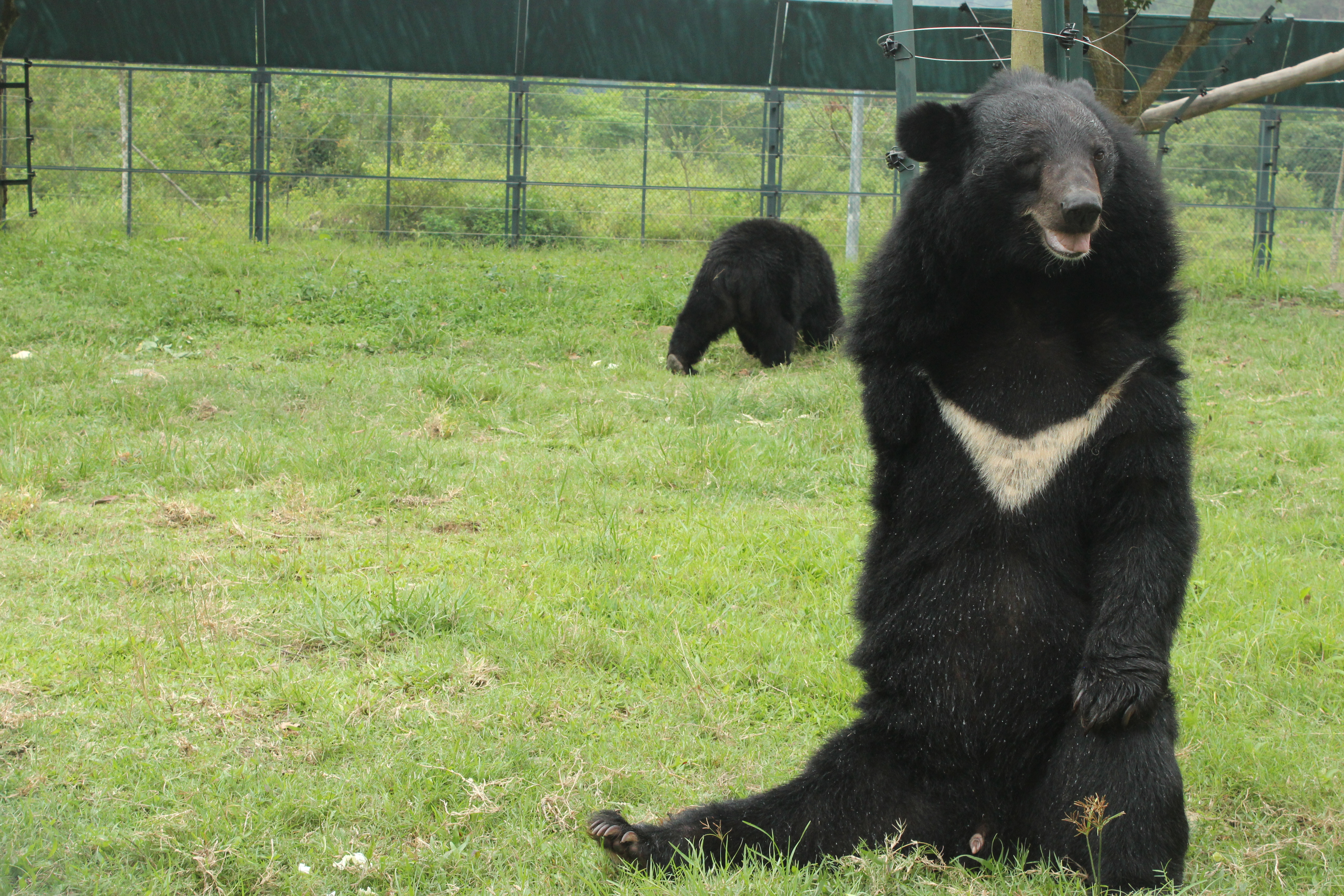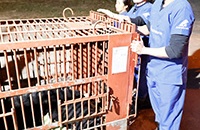Special needs bears: a special challenge
02 May 2014
Years of bile extraction on bear bile farms have left many of the rescued bears at Animals Asia’s sanctuary in Vietnam suffering from long term disabilities, presenting very specific challenges to the vet team.
At the Vietnam Bear Rescue Centre, 13 bears have missing paws and one, Vandrew, is missing an entire limb. There are also three blind bears and a further 29 who are either missing an eye or suffering from eye diseases.
The causes of these maladies stem not only from the bears’ time on bile farms, but also from their capture with missing limbs and paws most likely due to being caught in snares. Bile farms on the other hand are usually the cause of blindness, as trauma from banging their heads against the cage bars, and poor nutrition can cause various problems affecting the eyes.
Bear and Vet Team Director Annemarie Weegenaar explains:
“Asiatic black bears and sun bears are omnivores and need a wide variety of seasonal vegetation and browse, with protein in the form of small mammals and carrion too. Most farms simply offer the bear a rice congee, perhaps with a vegetable if available, which is a far cry from the nutritional needs of these bears. Our bears are fed fruit, vegetables and dog biscuits (for protein), plus an ever changing rotation of enrichment items which encourages their natural foraging instincts.”
Special needs bears pose a challenge to the vet team as they require a far greater deal of monitoring and care. The weight of all the bears in the centre is carefully monitored, but an especially close eye is kept on the weight of disabled bears to ensure that they are finding enough food in their enclosure.
Annemarie explains:
“Bears with eye diseases are checked regularly, but once every few years we have an ophthalmology team come over from the UK with very specific equipment to check for further changes and potentially perform surgery such as removing cataracts.”
Such a team is due to visit the VBRC this June, perfect timing for newly arrived juvenile James who is suffering from cataracts in both eyes.
Years spent in cramped cages can result in mobility problems which the vet team often sees. Annemarie said:
“Bears with mobility problems are checked every week by our vets to see if their mobility has changed and whether their current medication regime needs to be altered to ensure they are not in any discomfort. Once a course of medication has been decided upon, careful monitoring is necessary to see how the bear is responding.”
“Caring for these damaged bears is a huge responsibility, but seeing them able to live out their days in comfort makes it all worth while.”
BACK





 5 reasons the dog meat trade must end
5 reasons the dog meat trade must end
 New year, new home for Christmas the Bear!
New year, new home for Christmas the Bear!
 Veterinary welfare training – pain management
Veterinary welfare training – pain management